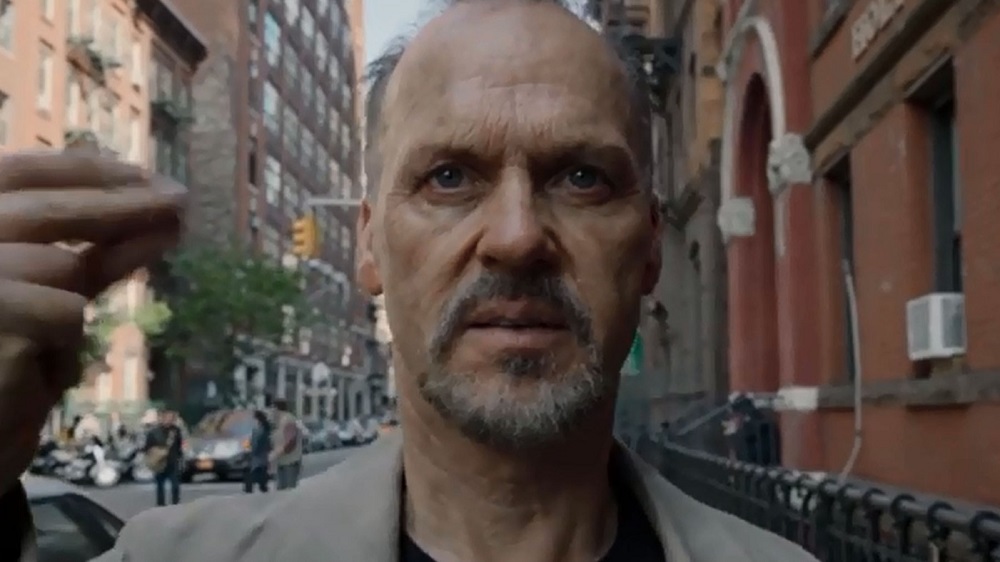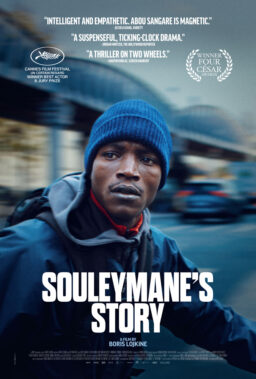Perhaps the loveliest surprise at the 87th Academy Awards ceremony held February 22nd at the Dolby Theater was the number of pointed and powerful acceptance speeches, many of which earned warm ovations from the visibly moved crowd. Candid confessions, sincere tributes and impassioned political statements proved to be the big winners of the evening, as “Birdman or (The Unexpected Virtue of—”…ah heck, let’s just call it “Birdman“…won four major awards for Best Picture, Director, Original Screenplay and Cinematography.
Not since 2011’s “The Artist” has one film claimed both the Picture and Director accolades, and like “Birdman,” “Artist” was also a bittersweet love letter to show business and an audacious portrait of a tormented artist in transformation. The film’s director/co-writer/producer Alejandro G. Iñárritu took home three trophies, capping the night off with a plea for better treatment of immigrants in America. “I just pray they can be treated with the same dignity and respect of the ones that came before and built this incredible immigrant nation,” Iñárritu said.
“Birdman”‘s biggest competition, Richard Linklater’s “Boyhood,” took home only one Oscar for Best Supporting Actress, but its winner, Patricia Arquette, delivered one of the night’s most memorable moments. Arquette portrayed a single mom during the epic production of “Boyhood,” which was spread out over twelve years, and embraced her acceptance speech as an opportunity to champion gender equality and the vitality of equal pay. Best Adapted Screenplay winner Graham Moore brought home the sole trophy for the Weinstein-backed “The Imitation Game,” and gave a startlingly rousing speech, confessing that he had attempted suicide as a teenager, and wanted his award to inspire people in their moments of hopelessness. In an interesting bit of trivia, for the first time since expanding the category, all 8 Best Picture nominees took home at least one award.
Though “Birdman” was anchored by its lead performance from Michael Keaton, the Best Actor Oscar went to Eddie Redmayne for his astonishing embodiment of Stephen Hawking in “The Theory of Everything.” Whereas Redmayne portrayed the physical deterioration of a brilliant man, Best Actress winner Julianne Moore portrayed the mental deterioration of a brilliant mind in her Alzheimer’s drama, “Still Alice.” In her speech, she mentioned that the film’s directors, Richard Glatzer and Wash Westmoreland, were not present due to the health struggles of Glatzer, who—like Hawking—suffers from ALS.
The ceremony reached its emotional peak with Common and John Legend’s performance of the night’s winning song, “Glory,” from Ava DuVernay’s criminally snubbed “Selma” (the shot of a tearful David Oyelowo, who played Martin Luther King, Jr., applauding the performers, was unforgettable). Yet the biggest surprise of the entire evening was the marvelous tribute to Robert Wise’s “The Sound of Music,” featuring a medley of the film’s classic tunes sung exceptionally well by Lady Gaga. Then Julie Andrews walked onstage, hugged Gaga and hell promptly froze over.
Below is the full list of winners:
Best Picture: “Birdman or (The Unexpected Virtue of Ignorance),” Alejandro G. Iñárritu, John Lesher and James W. Skotchdopole, Producers
Best Actor: Eddie Redmayne, “The Theory of Everything”
Best Actress: Julianne Moore, “Still Alice”
Best Supporting Actor: J.K. Simmons, “Whiplash”
Best Supporting Actress: Patricia Arquette, “Boyhood”
Best Director: Alejandro G. Iñárritu, “Birdman or (The Unexpected Virtue of Ignorance)”
Best Adapted Screenplay: Graham Moore, “The Imitation Game”
Best Original Screenplay: Alejandro G. Iñárritu, Nicolás Giacobone, Alexander Dinelaris, Jr. & Armando Bo, “Birdman or (The Unexpected Virtue of Ignorance)”
Best Animated Feature: “Big Hero 6,” Don Hall, Chris Williams and Roy Conli
Best Foreign Language Film: “Ida,” Paweł Pawlikowski
Bes: Documentary Feature: “CITIZENFOUR,” Laura Poitras, Mathilde Bonnefoy and Dirk Wilutzky
Best Original Song: “Glory” from “Selma,” John Stephens and Lonnie Lynn
Best Original Score: “The Grand Budapest Hotel,” Alexandre Desplat
Best Cinematography: “Birdman or (The Unexpected Virtue of Ignorance),” Emmanuel Lubezki
Best Film Editing: “Whiplash,” Tom Cross
Best Visual Effects: “Interstellar,” Paul Franklin, Andrew Lockley, Ian Hunter and Scott Fisher
Best Costume Design: “The Grand Budapest Hotel,” Milena Canonero
Best Production Design: “The Grand Budapest Hotel,” Adam Stockhausen and Anna Pinnock
Best Makeup and Hairstyling: “The Grand Budapest Hotel,” Frances Hannon and Mark Coulier
Best Animated Short Film: “Feast,” Patrick Osborne and Kristina Reed
Best Live Action Short Film: “The Phone Call” Mat Kirkby and James Lucas
Best Documentary Short Subject: “Crisis Hotline: Veterans Press 1,” Ellen Goosenberg Kent and Dana Perry
Best Sound Mixing: “Whiplash,” Craig Mann, Ben Wilkins and Thomas Curley
Best Sound Editing: “American Sniper,” Alan Robert Murray and Bub Asman












